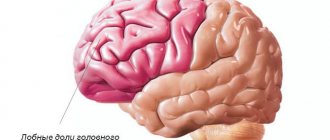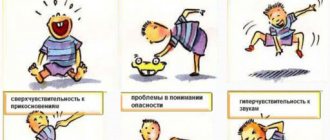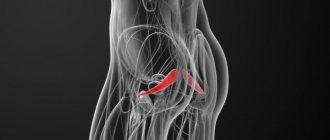Problems with concentration are a real scourge of modern society: more and more people complain of fatigue, distractibility and inability to concentrate on an important task. This can be either a consequence of multitasking and information overload, or a manifestation of a specific mental disorder - attention deficit hyperactivity disorder. “Theories and Practices” tried to figure out what ADHD is and how to cope with it.
Attention deficit hyperactivity disorder reveals all the weaknesses of psychiatry as a science: it is difficult to find a more controversial, vague and mysterious disorder.
Firstly, there is a high risk of misdiagnosis, and secondly, scientists are still arguing whether this is a disease at all or a variant of the norm - and if it is a disease, then can ADHD be considered a full-fledged diagnosis or is it just a set of symptoms, perhaps , not united by one reason. The history of research into attention deficit disorder (which received its current name only in the second half of the twentieth century) began in 1902, when pediatrician George Frederick Still described a group of impulsive, poor learning children and hypothesized that such behavior was not associated with developmental delays. The hypothesis was subsequently confirmed - although the doctor was unable to explain the reasons for this phenomenon. Twenty-five years later, another doctor, Charles Bradley, began prescribing benzedrine, an amphetamine-derived psychostimulant, to hyperactive children. The stimulants turned out to be very effective, although again, for a long time doctors could not understand the mechanism of their effect on patients. In 1970, American psychiatrist Conan Kornetsky first hypothesized that the disease may be associated with decreased levels of certain neurotransmitters in the brain and that such drugs help increase them. The American Psychiatric Association proposed the first methods for diagnosing the syndrome only in 1968, and in Russia they started talking about it only in the second half of the 1990s - and then without much enthusiasm.
A wary attitude towards this topic is understandable: the study of ADHD and the development of diagnostic criteria have been accompanied by scandals since the 1970s - the creators of the American reference book DSM-4 were accused of the fact that their descriptions of the disorder caused an entire epidemic of overdiagnosis in children and adolescents. Some doctors and parents chose medications as the path of least resistance: it was easier to stuff difficult children with medications than to cope with their characteristics using pedagogical methods. In addition, amphetamine-type drugs prescribed to active and uncontrollable children sometimes migrated into the arsenal of their housewife mothers: stimulants gave strength and helped them cope with housework (the most effective horror story on the topic of what the domestic abuse of such drugs leads to is the story of a mother main character in "Requiem for a Dream"). In addition, the criteria for diagnosing the disorder changed several times, which also caused a flurry of criticism. As a result, attention deficit disorder was greatly discredited and for some time fell into the list of “non-existent diseases”.
However, the experience of psychiatrists has shown that the problem, no matter how you classify it, still exists: a certain percentage of the population experiences difficulties associated with poor concentration, inability to self-organize, impulsiveness and hyperactivity. Often these characteristics persist into adulthood, and manifest themselves strongly enough to create serious problems for a person (especially an ambitious one) in school, at work and in his personal life. But usually the disorder is perceived by others and the patient himself not as a serious illness, but as a manifestation of personal shortcomings. Therefore, most adults with such a set of symptoms do not go to doctors, preferring to fight their “weak character” through strong-willed efforts.
What life is like for someone with ADHD
Attention deficit disorder causes difficulties for patients even at school: a teenager with this diagnosis, even if he has a high IQ, finds it difficult to learn material and communicate with peers and teachers. A person with ADHD can immerse himself in a topic that is subjectively interesting to him (however, as a rule, not for long - such people are prone to frequent changes of priorities and hobbies) and show brilliant abilities, but it is difficult for him to perform even simple routine work. At the same time, he is poor at planning, and with a high level of impulsiveness, at foreseeing even the immediate consequences of his actions. If all this is also combined with hyperactivity, such a teenager turns into a school teacher’s nightmare - he will get bad grades in “boring” subjects, surprise others with impulsive antics, disrupt order and sometimes ignore social conventions (since it will be difficult for him to focus on expectations and requirements of others).
Previously, it was believed that the disorder would “dissolve” on its own with age, but according to recent data, approximately 60% of children suffering from ADHD continue to exhibit symptoms of the disease into adulthood. An employee who is unable to sit through the end of a meeting and ignores important instructions, a talented specialist who misses important deadlines by suddenly getting distracted by some personal project, an “irresponsible” partner who is unable to organize his home life or suddenly blows a lot of money on some strange whim. - all of them may not just be weak-willed slobs, but people suffering from a mental disorder.
ADHD in adults
In adults, the main symptoms manifest themselves in the form of delays and decreased development of speech, counting, and complex skills. Because of this, they are unable to get an education, their range of interests is narrowed, and they rarely stay in one job for long. In adults, compared to children with ADHD, aggressiveness is less pronounced. In adulthood, ADHD is often accompanied by other behavioral disorders and mental disorders: psychopathy (personality disorders), encephalopathy, mental retardation, alcohol and drug addiction.
Diagnostic problems
According to various estimates, 7-10% of children and 4-6% of adults suffer from this disease. At the same time, the popular idea of a patient with ADHD as exclusively an impulsive fidget is already outdated - modern science identifies three types of the disorder:
— with an emphasis on attention deficit (when a person does not have signs of hyperactivity, but it is difficult for him to concentrate, work on the same task for a long time and organize his actions, he is forgetful and gets tired easily)
— with an emphasis on hyperactivity (a person is overly active and impulsive, but does not experience significant difficulties with concentration)
- mixed version
According to the American classification of mental disorders DSM-5, the diagnosis of “attention deficit/hyperactivity disorder” can be established no earlier than 12 years. In this case, the symptoms must be presented in different situations and settings and manifest themselves strongly enough to significantly affect a person’s life.
ADHD or bipolar disorder? One of the problems in diagnosing the syndrome is that in some ways the syndrome overlaps with other mental illnesses - in particular, cyclothymia and bipolar disorder: hyperactivity can be confused with hypomania, and fatigue and problems with concentration can be confused with signs dysthymia and depression. In addition, these disorders are comorbid - that is, the probability of getting both at the same time is quite high. In addition, suspicious symptoms may be due to non-mental illnesses (eg, severe head trauma or poisoning). Therefore, experts often recommend that those who suspect they have attention deficit disorder undergo a routine medical examination before contacting psychiatrists.
Gender nuances. Last year, The Atlantic magazine published an article about how ADHD manifests itself differently in women than in men. According to the studies described in the article, women with this disorder are less likely to show impulsivity and hyperactivity and more often show disorganization, forgetfulness, anxiety and introversion.
The editors of T&P remind you that you should not rely entirely on self-diagnosis - if you suspect you have ADHD, it makes sense to consult a specialist.
ADHD symptoms at an early age
A child who has been diagnosed with a disease exhibits hyperactivity in absolutely any situation. He is restless in his own home or with strangers, in kindergarten or school.
The signs of the disorder manifest themselves most clearly at the age of 5-10 years, but the first symptoms can be recognized much earlier by the characteristic behavioral features of an infant:
- Increases baby's muscle tone. He tries to quickly get rid of diapers and tight clothes;
- A newborn baby begins to hold his head up ahead of schedule, as well as roll over, crawl, sit and walk;
- It is difficult for parents to put the baby to sleep; the child sleeps in fits and starts and is much less than normal;
- When overtired, as a rule, he falls into hysterics, instead of engaging in a calm activity or falling asleep on his own;
- Bright lights, loud noises, sudden movements and changes in environment cause loud crying;
- Frequent, repeated fountain vomiting, not similar to regurgitation;
- Most often, the baby throws away new toys without having time to take a good look at them.
Such signs of behavioral disturbances often indicate a child's tendency toward ADHD, but can also be present in many active children under the age of three.
The consequence of the syndrome is a disruption in the functioning of the child’s body. The child has digestive problems. The autonomic nervous system actively stimulates the intestines, resulting in frequent diarrhea. Hyperactive children are more likely to have allergic reactions and skin rashes than their peers.
Losing control
The genetic factor plays a large role in the development of ADHD - if your close relative suffers from this syndrome, the likelihood that you will be given the same diagnosis is 30%. Current theories link ADHD to functional disturbances in the brain's neurotransmitter systems—in particular, to the balance of dopamine and norepinephrine. Dopamine and norepinephrine pathways are directly responsible for the executive functions of the brain - that is, for the ability to plan, switch between different stimuli with volitional effort, flexibly change one's behavior depending on changing environmental conditions and suppress automatic reactions in favor of conscious decisions (this is what the Nobel laureate What Daniel Kahneman calls "slow thinking"). All this helps us control our behavior. Another function of dopamine is to maintain the “reward system,” which controls behavior by responding to “correct” (from a survival point of view) actions with pleasant sensations. Disturbances in the functioning of this system affect motivation. In addition, people with attention deficit hyperactivity disorder may also have abnormalities in serotonin balance. This can cause additional problems with organization, timing, concentration, and emotional control.
Methods for getting rid of attention deficit
Take care of yourself
You must develop the habit of taking care of yourself. How to do it? Follow the recommendations that I will give below and you will have this habit. It is needed not only for working with ADHD, but, for example, for controlling emotions and self-knowledge. I described this topic in detail in the articles on mindfulness and in the second step of my self-development program, you can read these articles after you complete this one.
Avoid aimless activity of your body
Watch the position of your body and its members. If you catch yourself fidgeting in your chair or fiddling with something in your hands, stop it and try to sit quietly. Implement this principle into your daily life. If you are waiting for a dish in a restaurant that has not been brought for a long time, sit straight, do not fidget, keep your hands in front of you on the table, place them palms down and try not to move too much. Get rid of the habits of lip biting, nail picking, pen chewing, etc. These habits are markers of ADHD and by giving them permission you are cultivating the syndrome. Watch your posture, let it be almost motionless if circumstances do not require movement.
I’ll say right away that at first it will be difficult, when you try to follow these recommendations, you will feel a force that is bursting you from the inside, making you move and fuss, this is the “energy” of ADHD. It’s as if you are trying to block a rushing stream of water with your body and have difficulty holding it back. Nothing, be patient, then it will be easier, the flow will gradually, as you follow the recommendations, turn into a thin stream, and your body, which blocks it, will become wider and stronger.
Maintain information hygiene when surfing the Internet
One of the causes of ADHD is constant chaotic wandering in the information space. Such wandering, jumping from one thing to another, leaves a “cast” on our thinking, so that we can no longer concentrate on something else. Therefore, you need to gradually get rid of this reason. Organize your work on the Internet in such a way that it does not turn into moving from tab to tab. To do this, limit your time on social networks, for example, set aside a certain time for this, “until 15.00 I don’t go into contact or on Twitter, and at 15.30 I finish my visit to social media. networks and again I don’t go there until the evening.”
By the way, widespread activity in social media. networks appears to be one of the causes of ADHD. Since social networks, by their very structure, organize our receipt of information in such a way that we consume it in small and heterogeneous portions, quickly and intensively. We read the news, went to a friend’s page, simultaneously started an audio recording, published a tweet, and all this in 5 minutes. It’s like eating a lot of different foods at the same time: you ate a piece of fish, immediately ate a cucumber, reached for ice cream, put a shrimp in your mouth and washed it all down with a sip of kefir and coffee. And then, indigestion.
The brain also gets very tired and worn out from the intensive receipt of various information in a short period of time, just like the stomach from digesting a lot of food. This is why social networks are harmful. If you spend time on the Internet, then it is better to let information come to you in larger portions and with a larger time interval. Read long articles on Wikipedia or somewhere else, and look at paintings for a long time. There is no need to interrupt this process and frantically monitor the update of your personal mail or social network page and press the F5 key.
During this time, turn off your ICQ and Skype so as not to be distracted by them. And in general, when using these clients, try not to write there to your friends on every possible occasion; also, remember that you are not obliged to respond there immediately after someone writes to you. First, finish what you started, and then write, unless it’s something very urgent. Remember, when something distracts you from some process, it is carried out with much less efficiency, this is a scientific fact.
Force yourself to focus
Read books without being distracted by extraneous stimuli. The more boring the book, the better you train your ability to concentrate. But many boring books are quite useful, so let this exercise also serve as a good reason for you to learn new things and improve your professional and personal qualities. Mark the time during which you should not be distracted, but only read, let it be an hour or two. You can measure this in number of pages read, however you like. And until this time passes - no extraneous matters! The same applies to your work and affairs. Do all this without distractions and time yourself to complete it. (First of all, read this article to the end, with short breaks if necessary, but without being distracted by external stimuli)
Pay attention to what people tell you, learn to listen to your interlocutor. All this is very difficult at first. Attention will constantly drift to the side, but don’t let this upset or irritate you, just when you realize that you are distracted, calmly turn your attention back to the subject of concentration. Slowly but surely your ability to concentrate will improve.
Talk less irrelevantly
In the company of other people, you don’t need to say everything that comes to your mind, interrupt and rush to speak out. Calmly listen to others until the end, try to speak to the point and on the topic. Pause before answering and think about your answers. No need to chatter, keep an even and calm intonation.
Quit bad habits
Smoking is the biggest ally of ADHD: a cigarette takes up your attention and hands and only contributes to the development of the syndrome. People often start smoking out of inner restlessness and the inability to sit still and do nothing. This was the case for me, for example. I haven't smoked for a long time. You can then read the article on my website about how to quit smoking, the link I gave above.
Drink less alcohol. Have you ever wondered what the phenomenon of so-called beer alcoholism is? Not only in the love for the foamy drink, as such, but in the fact that beer, as a light alcohol, allows you to take sips often, as a result, your hands and mouth are constantly busy. And if you also smoke during pauses, chat between puffs, and look at the screen with one eye, then this takes up all your attention and only contributes to the development of attention deficit, in addition, it is also very harmful. So try to avoid noisy gatherings in bars drinking beer and cigarettes, rather rest in silence and try to relax.
Drink less coffee. Coffee, as a stimulant, can contribute to distracted attention and increased activity. Therefore, use it, but in moderation. You don't need to drink it until your limbs start to feel tremors.
If you use not only legal drugs: alcohol, tobacco and coffee, but anything prohibited, then you also need to get rid of this. For example, marijuana has a very bad effect on the ability to maintain attention for a long time on one subject, not to mention something more “heavy”.
Take a break from information
Take breaks from work, during which you simply relax and do nothing. Once you’ve finished your work, rest for 10 minutes; no need to stare at the monitor screen or go on social media. networks, see what they answered you there. Sit back and relax. Don't think about anything. Close your eyes if circumstances permit. Stop playing stupid games on your phone that are just made to pass the time. In transport, try to relax, and not reach for a tablet with a game, think about something that does not relate to today, give your mind a rest.
Listen to music, not just for background
Listening to music in a quiet environment at home, when you are not doing anything else, for example, just lying on your bed with headphones on, is an excellent and very enjoyable exercise for ADHD! Typically, people suffering from this disease cannot sit and relax and listen to music for an hour. Since it only fills your audio channel, and does not take other levels of sensory information. And this is too little for a person susceptible to sensory hunger as a result of ADHD; he needs as many channels of incoming information as possible to be filled: audio, video, touch, etc.
So do this exercise. Turn on calm, relaxing music. This kind of music is usually boring, so much the better for ADHD prevention! Your goal is to listen for an hour! You can take an album and not get out of bed until you finish listening to it! If it is very difficult, hold out for at least half an hour. It is advisable that you have not listened to this album before, since listening to unfamiliar music is more boring than listening to your favorite tracks.
This is a great opportunity to discover new musical trends that you had never thought of before. You can listen to ambient (for example, the album Steve Roach - Structures from Silence or Dreamtime Return - great things!) or calm jazz (Miles Davis - In A Silent Way), ethnic music, or whatever, as long as it is calm and smooth. You can listen to the audio recordings on the wall of my group in contact, just such things are collected there.
Play sports
Physical activity will help you channel excess energy into improving your health and developing your physical qualities, instead of wasting it on restless activity. Exercise often puts you into a steady, monotonous rhythm, as opposed to the frantic and chaotic rhythm that attention deficit disorder puts you into. During training, try to take a break from information, concentrating entirely on the work of your body. Therefore, you don’t need to listen to the player or look at the screen, give your brain a rest.
Sport strengthens overall tone and normalizes the functioning of the nervous system, the improper functioning of which may be associated with ADHD. (See the article on how to force yourself to play sports)
Learn to tolerate the wait
Try to relax, don’t fidget while standing in line, don’t run out to smoke every 10 minutes because you have nowhere to go. During this time, try to relax.
Take long, relaxing walks
A measured walk in the fresh air is good for relaxation and getting out of the rhythm of ADHD. So after work, instead of continuing to bombard your brain with new pieces of information (the Internet, TV, conversation), take a calm walk down the street, maybe even alone. Try not to think about the problems of today, think less in general and look around more, noticing your surroundings. Thoughts flow calmly and measuredly, try to relax as much as possible.
Meditate
This is perhaps the most effective and trouble-free method for the prevention of ADHD and many other unpleasant ailments! I’ll tell you now how meditation works. Have you noticed what all of the above methods have in common? This is the principle of counteracting ADHD symptoms that I mentioned above. You do the opposite of what attention deficit disorder forces you to do and this is how you get rid of it: you want to twitch - you force yourself to sit still, there is a desire to switch from tab to tab - you control yourself and do not allow this, it is difficult to listen to a music album to the end, you experience strong impulses to get up - you don’t do it, that’s all.
Meditation is a session of relaxation and concentration that has an extremely positive effect on the psyche and fully implements the principle of counteracting ADHD! When you meditate, firstly, you try to direct your attention to some object (an image, a physiological process in your body, a phrase in your head), thereby developing concentration skills, and secondly, you calm down, sit for about 20 minutes in a motionless, relaxed position. You will really want to get up and interrupt this process, your body will want activity, but you will fight this desire, pacify it and again direct your attention to its subject!
Can you think of a better exercise to learn how to be relaxed and cope with inner anxiety?! Meditation helped me a lot, and not only in eliminating ADHD, thanks to it all the work on myself was done, during which all the positive metamorphoses occurred in me and I was able to formulate the conclusions that fill my site and, in particular, this article.
Meditation is not magic, it is a simple exercise that anyone can do. To learn how to meditate correctly, read the article at the link.
Disorder or personality trait?
The concept of neurodiversity, an approach that views different neurological features as a result of normal variations in the human genome, is now gaining popularity. Adherents of neurodiversity are interested in both sexual orientation and gender self-identification, as well as some genetically determined mental illnesses, including autism, bipolar disorder and attention deficit disorder. Some scientists believe that many of the behaviors that lead to a diagnosis of ADHD are natural personality traits and do not indicate unhealthy abnormalities. But because such traits make it difficult for a person to function in modern society, they are labeled as “disorders.”
Psychotherapist Tom Hartman developed the spectacular “hunter and farmer” theory, which posits that people with ADHD retain the genes of primitive people responsible for behavior optimal for hunters. Over time, humanity switched to agriculture, which required more patience, and “hunting” qualities - quick reactions, impulsiveness, receptivity - began to be considered undesirable. According to this hypothesis, the problem lies only in setting tasks, and the ability of people with the syndrome to “hyperfocus” - strong concentration on a task that is subjectively interesting to them to the detriment of all others - can also be considered as an evolutionary advantage. True, Hartman is difficult to consider as an objective researcher - his son was diagnosed with ADHD.
But in any case, there is a sound grain in this theory: since one of the most important criteria of mental health is the ability to successfully cope with everyday tasks, many problems can be mitigated by choosing a suitable field of activity. That is, one where routine processes and patience play a lesser role and a “sprinting” temperament, the ability to improvise, curiosity and the ability to easily switch between various activities are valued. For example, it is believed that with ADHD you can make a good career in sales or entertainment, in the arts, and in “adrenaline” professions (say, a firefighter, a doctor, or the military). You can also become an entrepreneur.
How to be treated
Medications: Psychostimulants containing amphetamine (Aderall or Dexedrine) or methylphenidate (Ritalin) are still used to treat ADHD. Drugs from other groups are also prescribed, for example, norepinephrine reuptake inhibitors (atomoxetine), antihypertensives (clonidine and guanfacine) and tricyclic antidepressants. The choice depends on the specific manifestations of ADHD, additional risks (propensity for drug addiction or concomitant mental disorders) and the desire to avoid certain side effects (an approximate list of “side effects” from different drugs can be found here)
Since in Russia psychostimulants are firmly entrenched in the list of dangerous narcotic substances that are not available even by prescription, domestic psychiatrists use atomoxetine, guanfacine or tricyclics.
Psychotherapy. Cognitive behavioral therapy is believed to help with ADHD, which, unlike many other schools of psychotherapy, emphasizes working with the conscious mind rather than the subconscious. For a long time, this method has been successfully used in the fight against depression and anxiety disorders - and now special programs have appeared for the treatment of attention deficit disorder. The essence of such therapy is to develop awareness and not allow irrational patterns of behavior to take over a person’s life. Classes help control impulses and emotions, deal with stress, plan and systematize your actions and bring things to completion.
Nutrition and dietary supplements. You can try to adjust your diet in accordance with the advice of foreign medicine. The most common recommendations are to take fish oil and avoid sudden spikes in blood glucose levels (that is, say no to simple carbohydrates). There is also evidence showing a relationship between low levels of iron, iodine, magnesium and zinc and increased symptoms. Some studies suggest that small amounts of caffeine may help you concentrate, but most experts still advise against drinking too much coffee. In any case, adjusting your diet is more of a “maintenance” measure than a full-fledged way to combat the disorder.
Schedule. People with ADHD, more than anyone else, need planning and a clear routine. An external “backbone” helps to compensate for internal problems with systematization and time management: timers, organizers and to-do lists. Any large projects should be divided into small tasks and rest periods and possible deviations from the schedule should be included in the plan in advance.
ADHD Treatment
Successful treatment requires a thorough examination to identify the causes. Consultation with a psychiatrist, neurologist, modern research, such as tomography, electroencephalography, mapping, etc., make it possible to establish the factors that triggered ADHD and correctly determine the tactics to combat the disease. When treating ADHD, combinations of therapies such as:
- Drug therapy.
- Psychotherapy.
- Biofeedback therapy.
- Physiotherapy.
- Massage and exercise therapy.
- Psychological and pedagogical work.
- Classes with a speech therapist and defectologist.
- Neuropsychological correction.
Treatment is carried out both at home and in a hospital (in the form of courses in spring and autumn).










